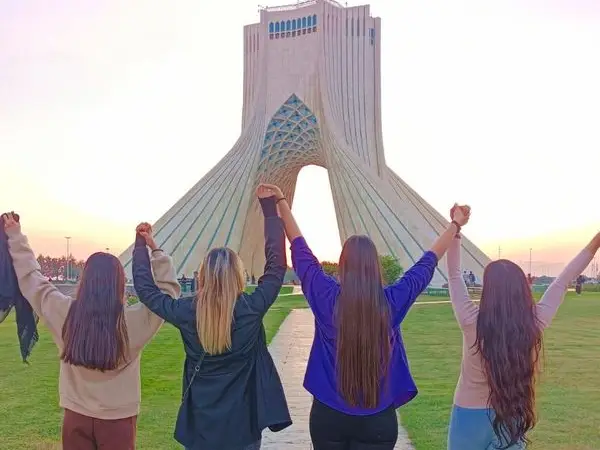Dozens of clerics from seminaries in Tehran demanded the government to take decisive action to enforce the hijab and stop what they called the “spread of nudism”.
“Nudism has been spreading due to the enemy’s trickery more and more but while we are showing patience, there is only passivity and lack of decisive action in the atmosphere of the country,” 46 officials of religious seminaries, including officials of women’s seminaries, wrote in a letter to President Ebrahim Raisi Thursday.
“We will not be able to demand the implementation of other laws in the future if we back down on the Hijab Law now,” seminarians said in their letter while criticizing the withdrawal of the infamous morality police patrols from the streets and demanding “immediate” action.
Morality police patrols were withdrawn from the streets in October amid nationwide protests that followed the death in custody of the 22-year-old Mahsa Amini who was arrested for failing to wear her hijab ‘properly’.
Protests sparked by Mahsa’s death have grown much less fierce and frequent since January while hardliners’ demands for enforcement of the Hijab Law have considerably grown.
Many of the women who burned their headscarves during the protests, particularly the younger generation, are still defiantly appearing ‘hijabless’ in public in unprecedented numbers.
Women’s defiance, which also signals their defiance of the clerical rule, is too vexing to the hardline establishment many of whom are trying to cast the responsibility of enforcement of hijab rules on businesses and encouraging individuals to take the matter into their own hands.
Ayatollah Mohammad-Mahdi Hosseini-Hamedani, the Friday imam of Karaj, criticized businesses for not addressing the hijab issue and said retailers, banks and government offices must enforce the rules.
Last week, the judiciary in Kashan ordered a very popular boutique hotel, Sara-ye Ameriha, in Kashan and Matin Abad Eco Camp about 45km from the same city to shut down on the grounds that their guests had not abided by “Islamic norms and the hijab rules”.
Sara-ye Ameriha, a massive historical house restored and turned into a boutique hotel shut down for failing to force guests abide by hijab rules.
The hotel and eco camp were both reopened Thursday after the tourism minister, Ezzatollah Zarghami, denied his ministry’s involvement and said shutting down such places was unacceptable because it violated the rights of domestic and foreign tourists that had made reservations and promised to resolve the problem.
Local authorities often take the matter of enforcement of hijab into their own hands by threatening businesses and even shutting them down if they fail to force their clients to abide by the rules.
On Thursday, the public and revolutionary prosecutor of Khuzestan Province not only warned to shut down local businesses but also warned that vehicles, presumably taxis and private cars, could also be impounded for passengers’ infringement as this “promoted hijablessness” .
Lawmakers have also drafted a new law that if approved would increase CCTV and social media surveillance of hijab and punish not only “offenders” but also businesses which fail to enforce the rules on their premises.
Bijan Nobaveh, one of the lawmakers behind the plan, said earlier this week that punishments included cutting mobile phone and internet access of “offenders” but Ahmad Naderi, a member of the presidium, later accused the media of using Nobaveh’s personal views to launch “an onslaught against the parliament”.
The plan demonstrates that lawmakers are not learning from experience. “Do not step on people and the society’s nerves,” the reformist Ham Mihan newspaper wrote Thursday, while mentioning other serious problems such as the high rate of inflation plaguing the economy.
